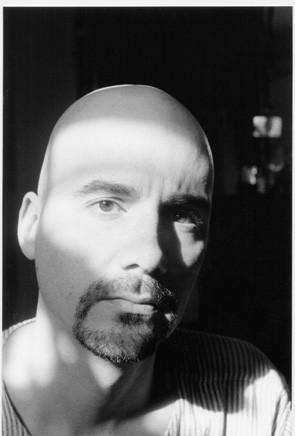Controversial? Maybe. Unorthodox? Definitely.
Winnipeg filmmaker Sean Garrity may be courting controversy with his latest film, but he doesn’t see it that way
Sean Garrity is not a man averse to taking risks with his craft.
The Winnipeg-born filmmaker first made waves in 2001 when his feature debut, Inertia, won the award for Best First Canadian Feature at the Toronto International Film Festival.
In 2005 he made Lucid, a tale of an obsessive insomniac, and won the coveted Grand Jury Prize at Toronto’s Hot Docs Film Festival, with critics comparing him to legendary filmmakers David Cronenberg and Luis Bunuel.
With his latest opus, Zooey and Adam, the filmmaker is tackling some pretty unsavory subject matter – not unlike his controversial contemporaries.
The film follows the story of a newlywed couple desperate to conceive a child until a tragic twist of fate grants their wish, giving the lovers much more than they bargained for. It has been dividing judges and critics across the nation’s film festivals.
When the film’s distributor, Kinosmith, heard of this, they immediately set about capitalizing on it, marketing the film as “the most controversial film you’ll see this year.”
But Garrity doesn’t feel that way.
“I didn’t set out to make a controversial film,” he explained over coffee last week at one of his favorite haunts, the Fyxx on Broadway.
“I hate it when writers or directors do that. I don’t think that’s a reason to make a film. To try and shock people without any real meaning to it, just so that critics can say ‘I understand [the film] in a more profound way than everyone else.’ The concept that there’s some ‘higher plane’ of intellect that we’re just not getting, making it controversial. That’s really just bullshit.”
Though he disagrees with the label being put on the film, Garrity did admit that he understands why it’s getting such a rap.
“ When you see Tom [Keenan] arguing with Daria [Puttaert], and she drops a bomb on him, the awkward pause, the shocked look on his face: those are real. Tom didn’t know that was coming.
Sean Garrity, filmmaker
“I get it. I mean, I wish I could discuss the basis of the film with these people and try to change their minds, but I do get it. It’s a film about a man who’s wife gets raped in front of him, and instead of following her story afterwards, it follows his,” Garrity said.
“I think it’s a perspective people aren’t used to, and it’s clearly not something that these people are comfortable with.”
In making such an emotional film like this, Garrity decided to take a rather unorthodox approach with his actors.
Instead of simply laying the story out for them, he chose to instead inform them individually of their motivations scene by scene, often providing them with conflicting motives, in order to capture the genuine pauses and emotions on camera.
“When you see Tom [Keenan] arguing with Daria [Puttaert], and she drops a bomb on him, the awkward pause, the shocked look on his face: those are real. Tom didn’t know that was coming. I would tell him before the scene something completely different than Daria, and they would have no idea what the other person was going to do or say. For that reason, we rarely did any second takes,” Garrity explained, smiling mischievously.
“I was so lucky to have such fearless actors who were willing to takes risks like that.”
Published in Volume 64, Number 17 of The Uniter (January 28, 2010)







